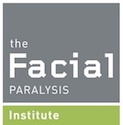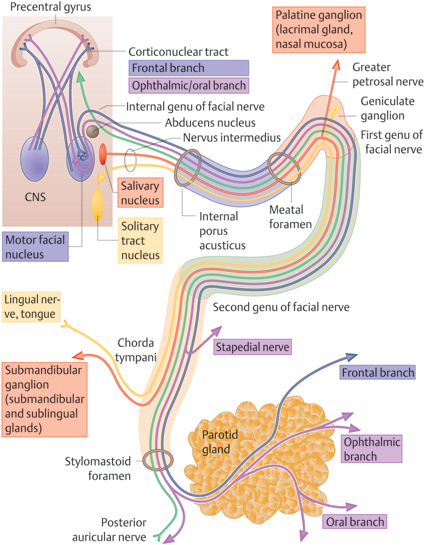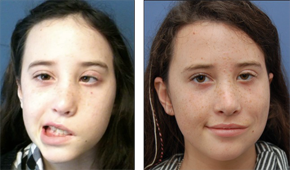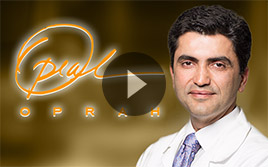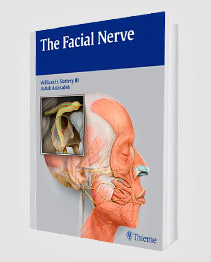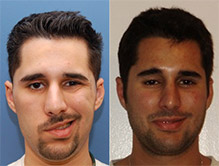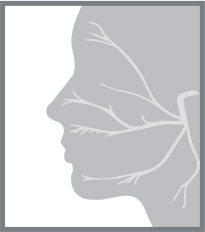Directed by world-renowned facial paralysis surgeon Babak Azizzadeh, MD, FACS, the Facial Paralysis Institute in Los Angeles brings together a team of highly-specialized facial nerve experts for the management and successful treatment of a wide variety of facial palsy conditions. The Facial Paralysis Institute is a cutting-edge medical center dedicated to bringing patients the best possible facial reanimation outcomes available today, including younger children born with congenital facial paralysis.
What Is Congenital Facial Paralysis?
Congenital facial paralysis is a rare form of facial palsy affecting children at birth. To make a diagnosis, extensive testing, including physical examinations, is necessary to exclude other conditions. When a child is born with congenital facial paralysis, it’s somewhat common for other disorders to be present, including microtia, cleft palate, deformed extremities, and other muscle paralysis.
Congenital facial paralysis is organized into several different classifications, including:
- Unilateral or Bilateral
- Traumatic or Developmental
- Complete or Incomplete
Aside from difficulties that are present immediately including eye closure and nursing, If congenital facial paralysis is not treated and does not resolve later in life, it may affect the child’s future developments in relation to speech and emotional expression.
Moebius Syndrome
Moebius syndrome is a form of facial paralysis that can be present at birth, which involves the absence of the necessary 6thand 7th cranial nerves for optimal and normal facial muscle function, particularly in relation to the eyes. Children with Moebius syndrome often experience great difficulty controlling eye movements on the affected side and making facial expressions. Other symptoms of the condition include:
- Inability to smile
- Inability to frown
- Inability to blink
- Inability to move eyes laterally
- Inability to make ‘sucking’ mechanism
To treat children dealing with Moebius Syndrome, Dr. Azizzadeh enlists the help of his team of experts ranging from neurologists, ophthalmologists, and physical therapists to provide the highest level of care possible.
Treating Congenital Facial Paralysis
Treatment protocol for patients with congenital facial palsy is rapidly changing. Historically, patients would not be treated until they reached adulthood. Due to advancements in microsurgical techniques over the past decade, we have begun to treat children at an earlier age to help them get a head start in blending in psychosocially.
It’s extremely integral for treatment to be tailored to the patient and their particular disorder. Patients with CULLP (congenital unilateral lower lip palsy) have limited issues and can be treated successfully with Botox to the opposite side of the face as teenagers and adults without the need for complex surgery. Patients with Moebius or bilateral facial paralysis require gracilis muscle flaps that are attached and controlled by the masseteric nerve as early as age 5. Patients with unilateral facial paralysis can potentially be treated with a combination of the masseteric to facial nerve transfer in with a cross facial nerve grafts or gracilis free flaps as early as age 2.
One of the most important factors of treating a younger patient dealing with facial palsy is the development of a completely safe and customized treatment plan, as this will allow for the best results in regards to improved facial reanimation and facial symmetry possible.
Congenital Facial Paralysis FAQ’s
To better help our patients understand their treatment options and condition, Dr. Azizzadeh, facial paralysis expert, has composed a list of the most frequently asked questions we hear at the Facial Paralysis Institute.
Q: What is congenital facial paralysis?
A: Congenital facial paralysis is used to categorize instances of facial palsy that are present when a child is born. This type of facial paralysis is classified as either traumatic, developmental, bilateral, unilateral, complete, and incomplete.
Q: What is the best treatment for congenital facial paralysis?
A: Until Dr. Azizzadeh is able to examine the patient in person, perform necessary testing, and pinpoint a cause, it is difficult to determine what the best treatment will be. The Facial Paralysis Institute is home to the most revolutionary treatment options available, and Dr. Azizzadeh is confident in his abilities to develop a unique plan of action that will be best suited for a child suffering from congenital facial paralysis
Q: Is facial paralysis in children common?
A: Congenital facial paralysis accounts for a very small number of total facial paralysis cases.
Q: Will insurance cover my facial paralysis surgery?
A: This depends on the type of insurance you have. In many cases, we’re able to work with insurance providers to get a portion of your procedure covered. When you visit our office for your first appointment and can be assessed by Dr. Azizzadeh, our office staff will gladly help you in any way that we can.
Q: Who should perform facial paralysis surgery?
A: It’s very important that a highly specialized facial paralysis surgeon treat individuals dealing with facial paralysis. Only a doctor with a great knowledge in the facial nerve and it’s function should perform surgeries and treatments, as they have the best understanding in bringing optimal, long-lasting, and effective results.
Schedule Your Consultation At The Facial Paralysis Institute Today
If you’re loved one has been diagnosed with congenital facial paralysis or any other type of facial palsy, we encourage you to contact the Facial Paralysis Institute today to schedule your initial consultation with world-renowned facial paralysis surgeon Babak Azizzadeh, MD, FACS. Dr. Azizzadeh’s knowledge, skill, and revolutionary surgical techniques can provide patients with highly favored results while improving facial reanimation and restoring the smile, a capability all children should have.
Fore more information regarding treatments for facial paralysis in younger individuals, please contact the Facial Paralysis Institute today by calling (310) 657-2203 .
Request your consultation with Dr. Azizzadeh today
Call us at (310) 657-2203 to schedule an appointment.
Schedule a Consultation